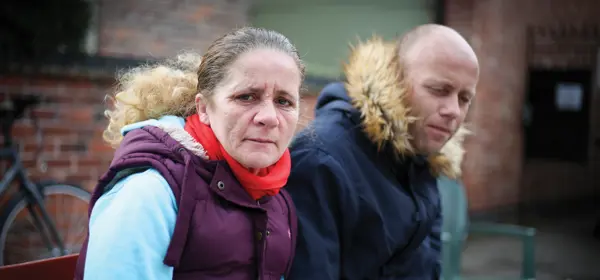Closure of specialist GP practice ignored risks to patients
Closure of specialist GP practice ignored risks to patients
Health leaders who failed to carry out impact assessments and proper consultation ordered to review processes and adjust services for homeless patients
Health leaders who closed a specialist GP service for homeless patients mishandled the process – failing to engage with ‘potential risks to patients’ or consult with important staff and stakeholders.
A report from the INWO (Independent National Whistleblowing Office) – which looked into complaints around the decision to shut Hunter Street GP practice in Glasgow in March 2023, and the handling of the process – also found bosses failed to carry out a timely equality impact assessment properly before the decision was made.
Local health leaders have now been told they must address the situation and provide evidence that they must ‘seek to fully understand the impact of the service closure on patient health’ before adjusting services wherever required.
The INWO also said decision makers must review training, systems and processes to ensure future decision making is supported by proper consultation, timely engagement and that responsibilities under the Equalities Act are properly understood.
Homeless patients’ needs
The Scottish Deep End Group, comprising clinicians working in the general practices caring for Scotland’s most socioeconomically disadvantaged communities, issued a statement welcoming the report and its findings.
A spokesperson said: ‘We are keen to support a positive way forward to ensure there is high-quality primary care available for Inclusion Health populations (including people experiencing homelessness) in Glasgow and throughout Scotland. In particular, we agree with the report recommendation that “the ongoing health needs of those experiencing homelessness are understood and services adjusted as required”.
‘This health needs assessment needs to be rigorous, and involve all relevant stakeholders, in a way that builds trust. We believe that the reinstatement of the specialist general practice should be considered as an option to ensure the provision of flexible, inclusive, tailored healthcare for people experiencing homelessness.’
The concerns raised by the report should not have been news to local health leaders. In June of last year, just months after the practice was closed, The Doctor reported concerns around the situation.
Rise in death rate fear
Doctors and senior charity staff said homeless patients the practice served, who were living with mental and physical health problems and destitution, had been left with nowhere to turn other than overstretched emergency departments.
They said they feared rising death rates and an ‘awful amount of harm’ and were witnessing people being excluded from healthcare. They also described a flawed process and said the services previously offered were crucially needed.
As a result of the concerns raised, The Doctor asked local health leaders – via the Freedom of Information Act – for details and copies of consultations carried out, impact assessments conducted and a report which supposedly monitored any consequences of the decision. In response, a spokesperson for the Glasgow City HSCP (Health and Social Care Partnership) said: ‘the council does not hold the information requested, nor does anyone hold it on our behalf.’ A link to a public document regarding the changes was provided.
The Glasgow City HSCP said the organisation noted the findings, was committed to reviewing the recommendations and would 'continue to develop services for those impacted by homelessness despite increased demand and a challenging financial climate’.



